September is Newborn screening (NBS) awareness month. Did you know that Sebia offers the Capillarys 3 DBS a high-quality solution for screening newborns, so Irish labs can assist healthcare providers better manage newborn screening? Every day thousands of babies are born around the world, and they are screened for serious treatable conditions to permit early treatment and reduce long-term disability and morbidity. NBS is accepted worldwide and was first introduced in 1963 by Dr Robert Guthrie who developed a bacterial inhibition assay to screen newborns for phenylketonuria and pioneered a new blood collection method known today as ‘Guthrie cards’ Guthrie cards allow for newborns to have their blood taken by a heel prick and whole blood spotted onto filter paper for testing. Before the development of the Guthrie card blood was collected from the umbilical cord of newborns shortly after birth, however, this technique can be unreliable due to the presence of the mother’s blood.
Currently, newborn screening programmes around the world differ based on the repertoire of tests offered. The UK test for 9 rare but serious conditions including Sickle Cell Disease which has been part of the national screening service in the UK since 2002(4) and in the USA for almost 60 years (5). In Ireland, newborns are also screened for 9 rare but serious conditions however SCD is not included. SCD screening is only carried out if requested by a doctor and a study in 2015 discovered that only 25% of children with SCD were referred to the haemoglobinopathy service in their first year of life (1). Currently, around 800 people including 350 children are known to be living with SCD in Ireland (2).
Treatment for sickle cell disease is blood transfusions, medication, and preventative lifestyle measures. The only known cure for SCD is to have a stem cell transplant which is currently not available in Ireland. Local charities such as the Sickle Cell and Thalassaemia Ireland are calling for people to have genetic screening to determine carriers of the disease, which is most common in people with an African or Caribbean background.
The Sebia Capillarys 3 DBS is a fully automated capillary electrophoresis anlayser for the detection of haemoglobinopathies in newborns using Guthrie cards. According to the central statistics office 58,443 babies were born(3) in 2021, averaging 161 per day. The Capillarys 3 DBS is designed for high throughput newborn screening and one instrument could screen every baby born in Ireland in under 3 hours per day. The Sebia newborn haemoglobin assay can screen for all common haemoglobinopathies including HbS, HbD, HbE, HbC, HbH and Hb Barts all of which can be viewed in their every growing haemoglobinopathy atlas.
Key benefits of the Capillarys 3 DBS
- High throughput of 70 samples/hour
- High autonomy with 8 full 96 well plates could be analysed in a single run without reagent refill.
- Direct sampling from dried blood spots
- Validated with the automated PerkinElmer ™ puncher instruments
- Full sample traceability from sample card ID up to results via barcoded microplates

Get in touch with our product specialist below for more information on the the Capillarys 3 DBS or browse the range here.
Get In Touch
References
(1) https://pubmed.ncbi.nlm.nih.gov/25803954/
(2) https://ec.europa.eu/migrant-integration/news/ireland-stigma-and-lack-specialised-medical-services-migrant-and-ethnic-minority-patients_en
(3) https://www.cso.ie/en/releasesandpublications/ep/p-vsys/vitalstatisticsyearlysummary2021/#:~:text=Births%20and%20deaths%20rise%20in%202021&text=There%20were%2058%2C443%20births%20in,male%20while%2015%2C843%20were%20female.
(4) Int. J. Neonatal Screen. 2019, 5, 15; doi:10.3390/ijns5010015
(5) https://www.babysfirsttest.org/newborn-screening/2022-newborn-screening-awareness-month


